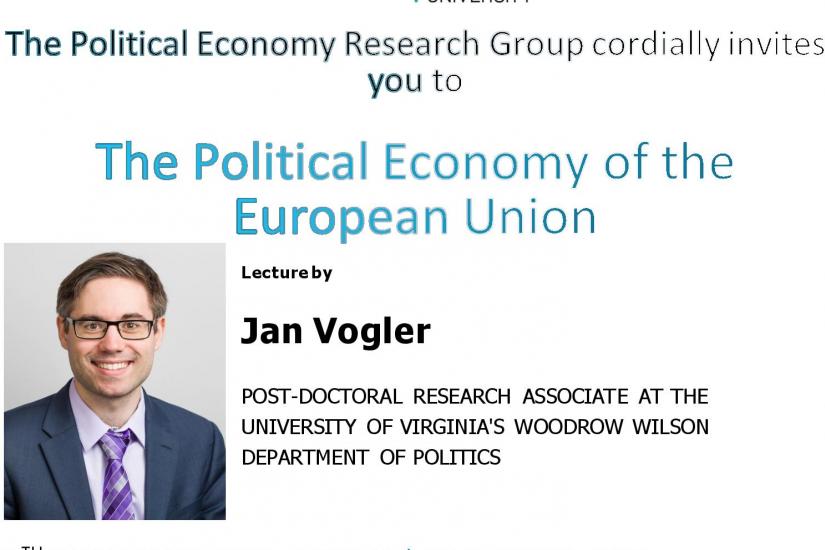
ABSTRACT |This talk covers three papers on the political economy of the European Union, each analyzing EU-related topics from a different perspective. The first paper applies the political-economic theory of polycentrism as developed by Vincent and Elinor Ostrom to the EU. While this framework was originally created to analyze governance in metropolitan regions, this paper describes how polycentrism can be applied to the EU. The second paper considers the impact of EU financial assistance on local state capacity, which may be seen as an indirect positive effect. It finds that local governments in Poland that have received more EU funding also have higher levels of specific types of bureaucratic capacity. The third paper provides a novel perspective on how citizens form their views of EU institutions, specifically the European bureaucracy. It finds that citizens use heuristics to form these views and often use experiences with domestic institutions to judge similar EU-level organizations.
BIO | JAN VOGLER RECENTLY OBTAINED HIS PH.D. IN POLITICAL SCIENCE FROM DUKE UNIVERSITY–WITH A SPECIALIZATION IN POLITICAL ECONOMY AND POLITICAL METHODOLOGY. SINCE FALL 2019, HE HAS BEEN A POST-DOCTORAL RESEARCH ASSOCIATE IN THE POLITICAL ECONOMY OF GOOD GOVERNMENT AT THE UNIVERSITY OF VIRGINIA'S WOODROW WILSON DEPARTMENT OF POLITICS. HIS RESEARCH COVERS A WIDE RANGE OF TOPICS, INCLUDING THE ORGANIZATION OF PUBLIC BUREAUCRACIES, VARIOUS FORMS OF POLITICAL AND ECONOMIC COMPETITION (IN DOMESTIC AND INTERNATIONAL SETTINGS), THE LEGACIES OF IMPERIAL RULE, AND STRUCTURES AND PERCEPTIONS OF THE EUROPEAN UNION. IN HIS DISSERTATION, HE ANALYZES THE DETERMINANTS OF CROSS-NATIONAL AND CROSS-REGIONAL VARIATION IN THE INSTITUTIONS AND PERFORMANCE OF PUBLIC ADMINISTRATION BY CONSIDERING THE IMPACT OF HISTORICAL EVENTS AND PROCESSES.